Logical Thinking worksheets activities for 9-Year-Olds
8 filtered results
-
From - To
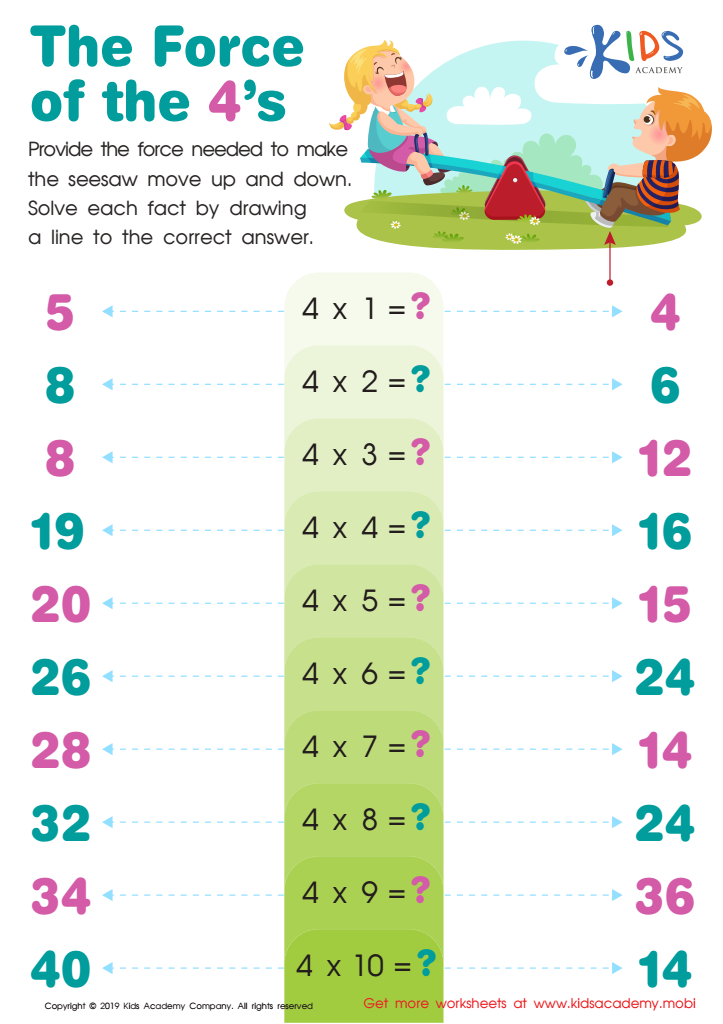

The Force of the 4's Worksheet
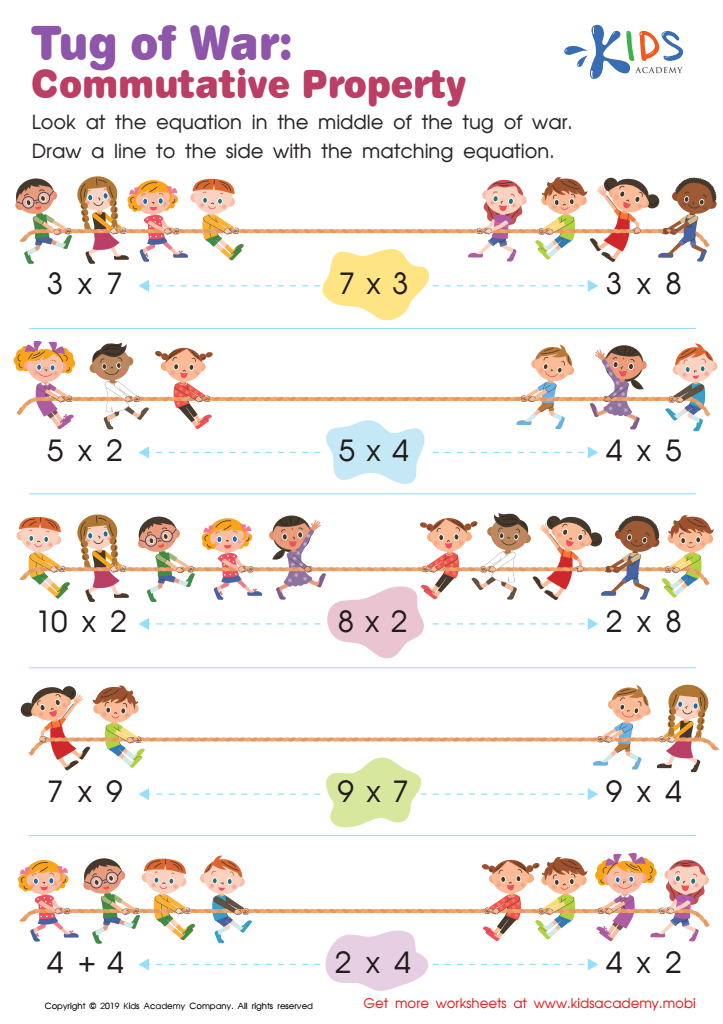

Tug of War: Commutative Property Worksheet
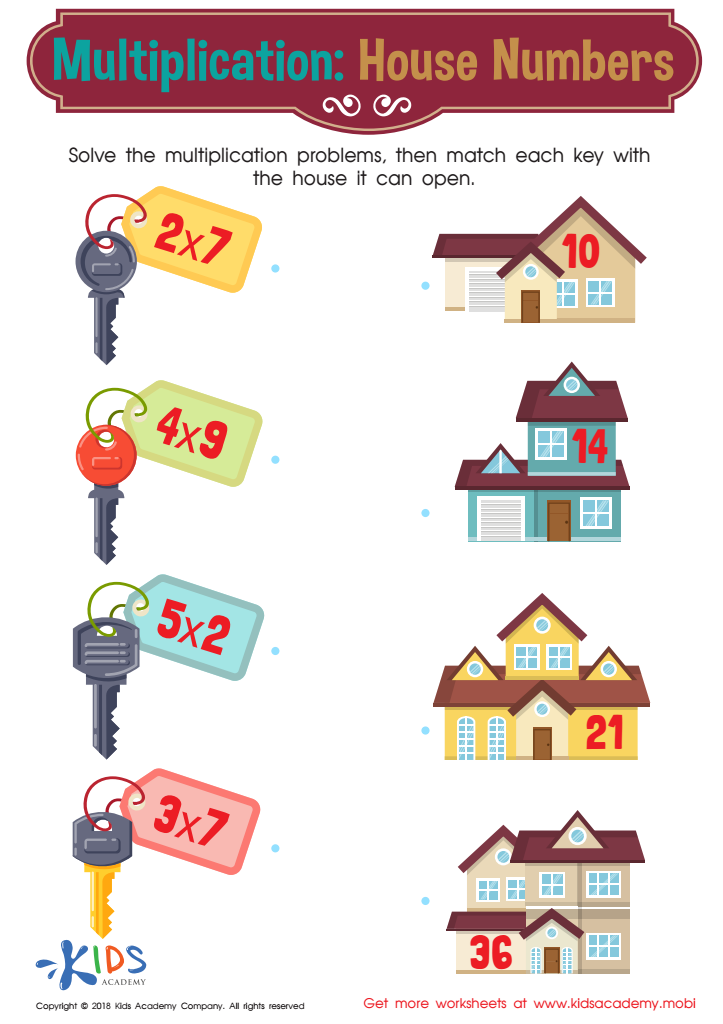

House Numbers Worksheet
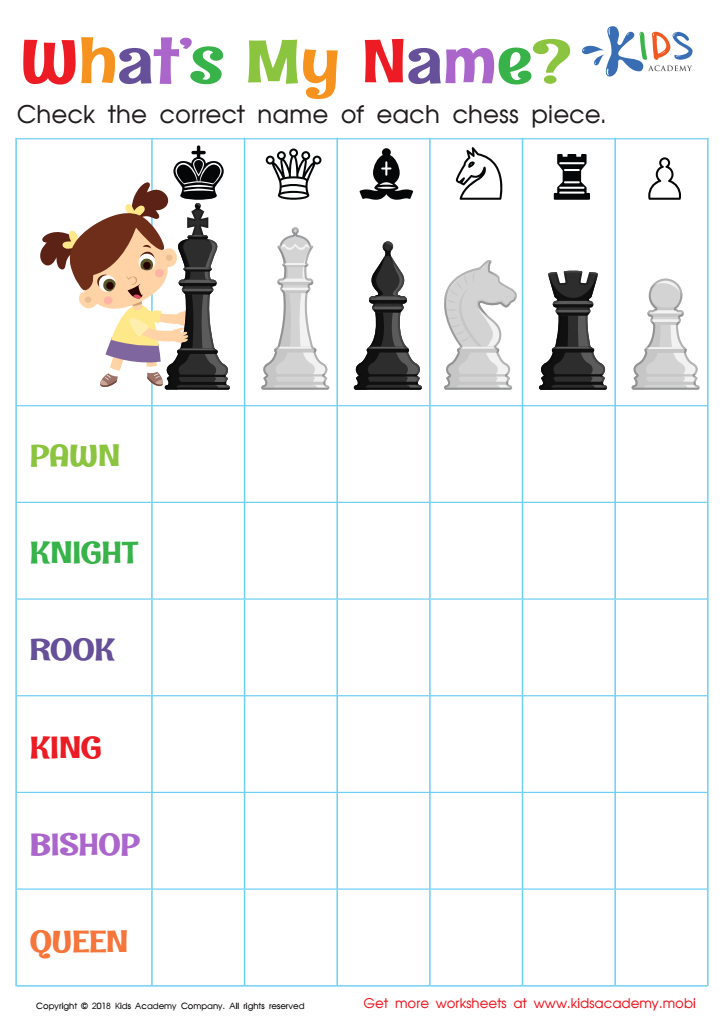

What's My Name? Worksheet
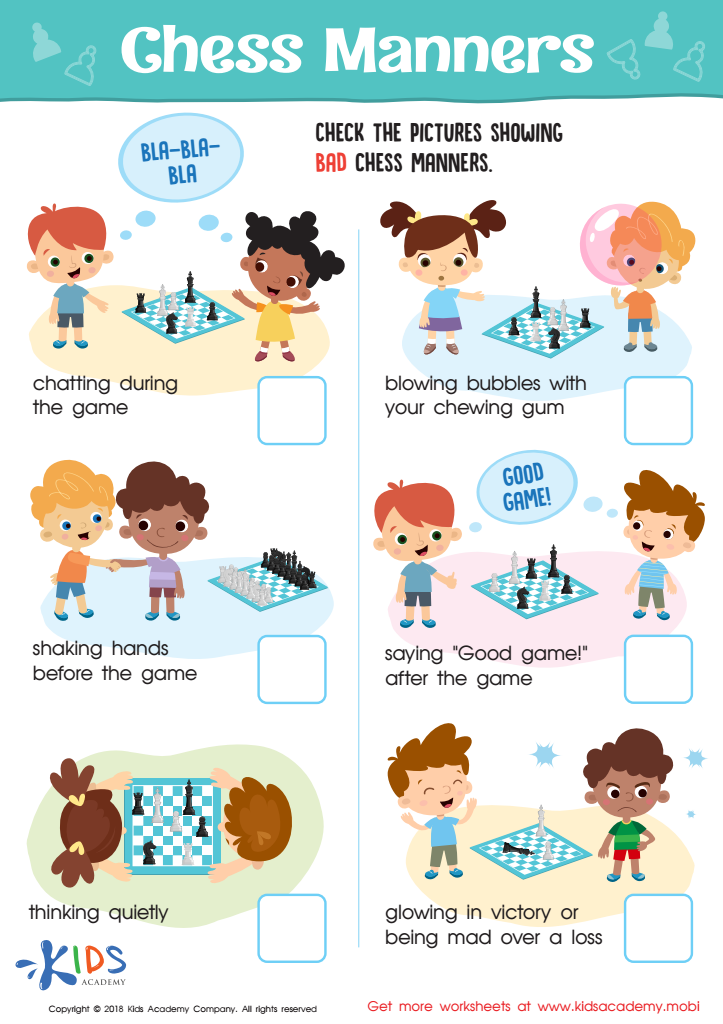

Chess Manners Worksheet
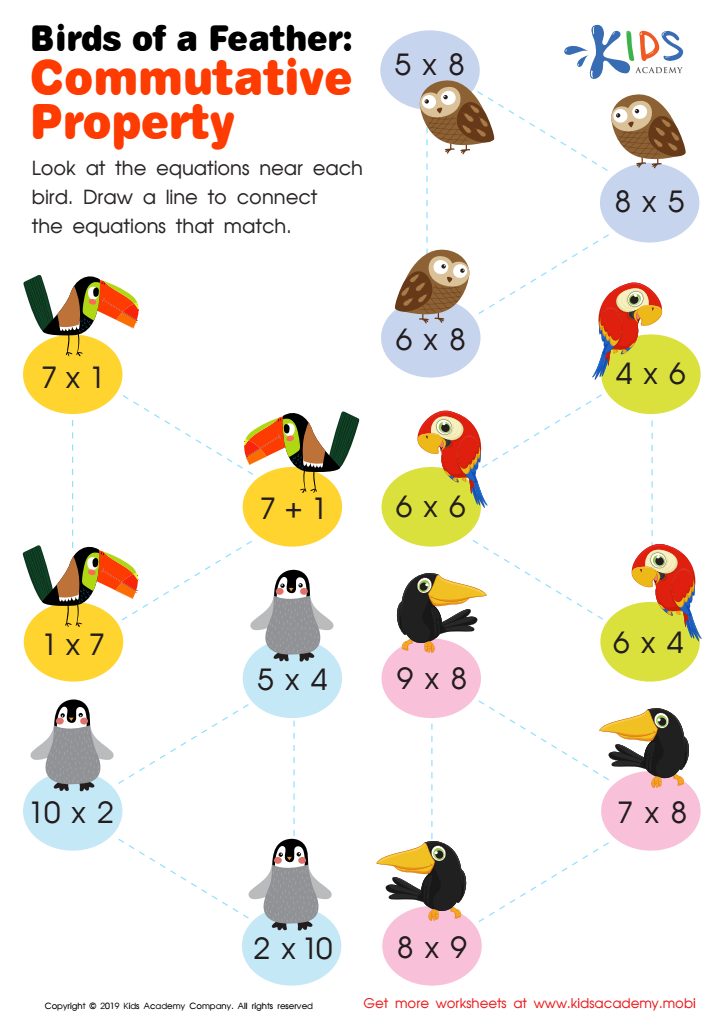

Birds of a Feather: Commutative Property Worksheet
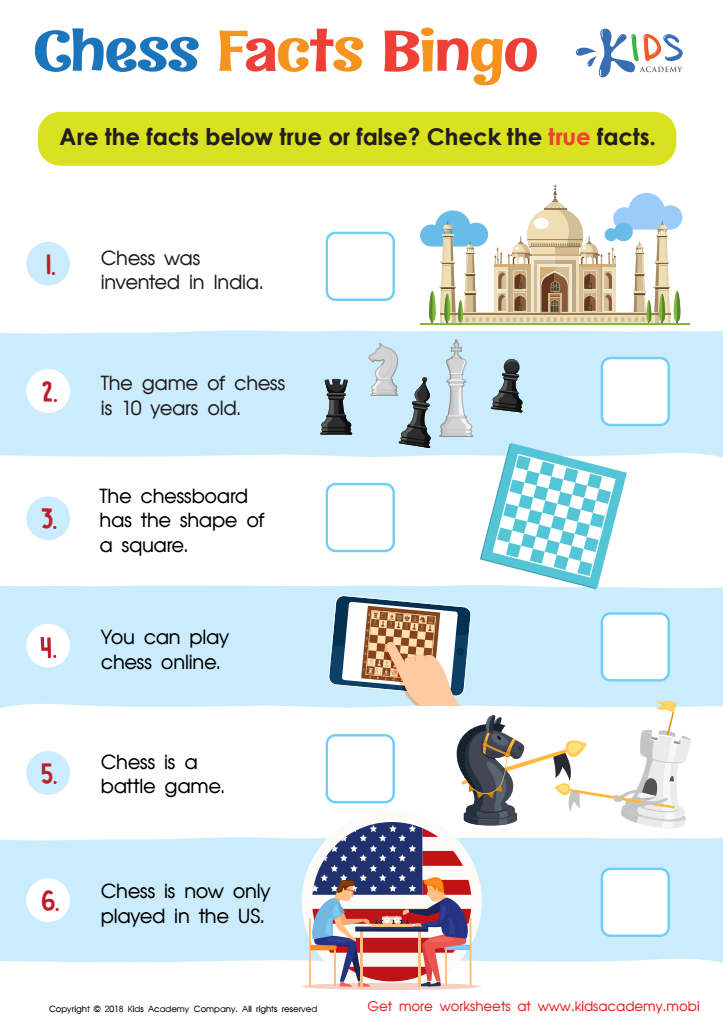

Chess Facts Bingo Worksheet
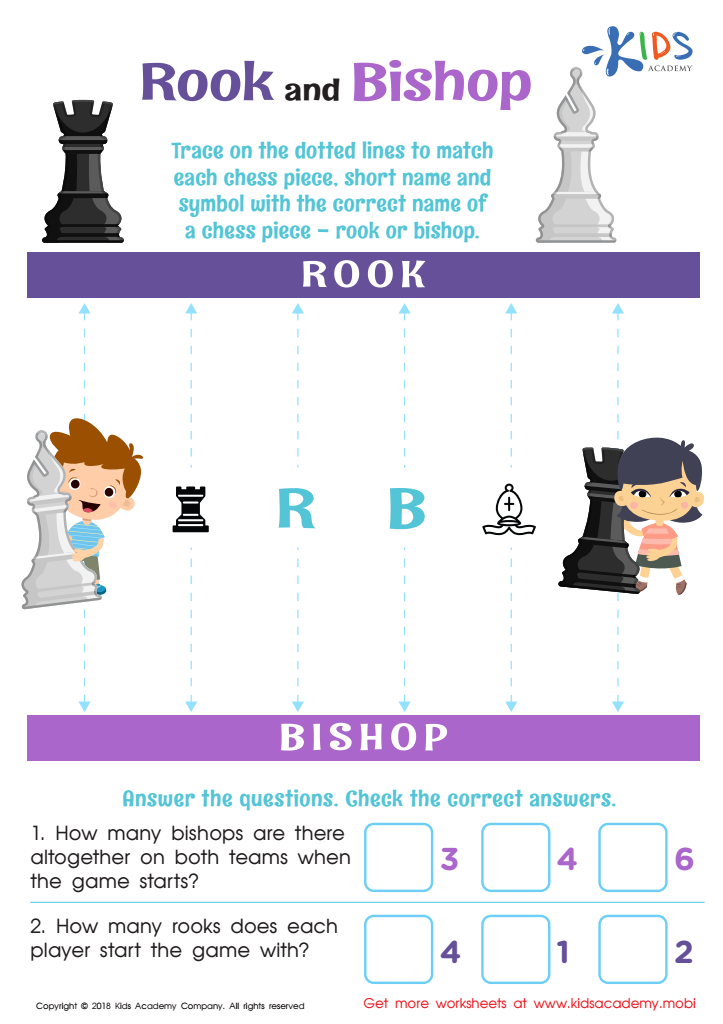

Rook and Bishop Worksheet
Logical Thinking worksheets activities are an essential tool for cognitive development, catering to a wide range of age groups and educational settings. These activities are designed to enhance one's ability to think critically, solve problems effectively, and make reasoned decisions. The significance of integrating Logical Thinking worksheets activities into the learning process cannot be overstated, as they serve multiple educational and developmental purposes.
Firstly, Logical Thinking worksheets activities foster analytical skills. Through engaging with these worksheets, individuals are encouraged to break down complex problems into manageable parts, analyze relationships between different elements, and understand patterns. This analytical process is crucial not only in academic environments but also in everyday life, where making sound decisions often requires a step-by-step evaluation of information.
Secondly, these activities promote creativity. While Logical Thinking might seem strictly methodical, it actually encourages out-of-the-box thinking. Participants are often faced with problems that do not have straightforward answers, compelling them to think creatively to find solutions. This blend of logical reasoning and creativity is what makes Logical Thinking worksheets activities uniquely beneficial.
Furthermore, developing proficiency in logical thinking from an early age prepares students for future academic challenges, especially in STEM fields where logical reasoning is foundational. It equips them with the skills needed to tackle complex mathematical concepts, scientific theories, and technological problems.
Moreover, Logical Thinking worksheets activities are versatile and can be tailored to different learning styles and abilities. Whether through puzzles, scenarios, or problem-solving tasks, these activities can be adapted to ensure that every learner is engaged and challenged, making the learning experience both inclusive and effective.
In conclusion, Logical Thinking worksheets activities are invaluable in nurturing critical thinking, analytical skills, and creativity. They prepare individuals not only for academic success but also for making reasoned and informed decisions in their personal and professional lives. By incorporating these activities into the educational curriculum, educators can provide learners with the tools they need to navigate an increasingly complex world with confidence and competence.

 Assign to My Students
Assign to My Students















